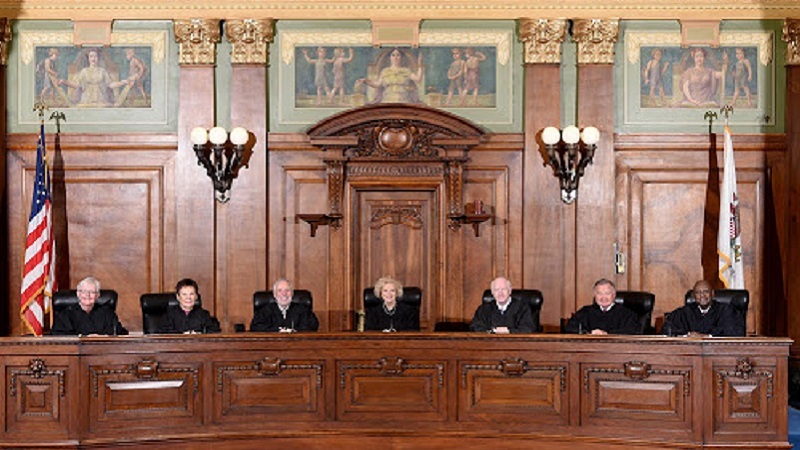The appellate court erred in 2019 when it affirmed Cook County Judge William Hooks' decision that led to a new trial—a third one— for convicted cop killer Jackie Wilson, the Illinois Supreme Court has ruled.
The little noticed February 16 Supreme Court ruling in People v. Fair is one of first impression and is seen as a blow to plaintiffs’ attorneys filing wrongful conviction lawsuits in cases that begin their legal journey with the Torture Inquiry & Relief Commission (TIRC), which refers cases for new evidentiary hearings where police torture is alleged. In overruling People v. Wilson, the Supreme Court effectively said that the attorneys representing clients who claim police torture will now bear the burden of proving the claim, rather than the state bearing the burden to show the confession was voluntary– as Judge Hooks ruled in 2018.
Hooks received the Wilson case when TIRC in 2015 referred it for a new hearing saying “there was sufficient evidence" that he was tortured into confessing to his role in the 1982 murders of officers William Fahey and Richard O’Brien. He was convicted twice, in 1983 and 1989, and received life sentences both times.
But charges against Wilson were dropped during his third trial in 2020. A year later he filed a wrongful conviction lawsuit in federal court and that led to the award— a partial settlement as the lawsuit against the city still stands— two weeks ago of $17.5 million from Cook County.
In its 2019 decision, the appellate court ruled that the burden surrounding torture is the same under the TIRC Act as under the Post-Conviction Act. Under the Act, a post-conviction petition challenges a sentence based on violations of constitutional rights.
“First, even an evidentiary hearing under the Post-Conviction Act is not intended to decide the ultimate issue of whether the petitioner’s confession was coerced,” the court said. “Instead, the petitioner has the burden of showing only that newly discovered evidence would likely have altered the result of a suppression hearing [suppression of a confession].”
“Given the similarities between evidentiary hearings under the Post-Conviction Act and the Torture Act, we find a petitioner’s initial burden under the Torture Act is the same,” the court continued.
But the Supreme Court said that the appellate court incorrectly equated the burden of torture allegations in the acts, which in the Wilson case put the burden on the state to prove that his confession was voluntary.
“We conclude that the plain language of the Act requires the circuit court to determine whether a petitioner has shown by a preponderance of the evidence that (1) torture occurred and (2) resulted in a confession that was (3) used to obtain a conviction, not to assess the voluntariness of statements or other constitutional claims that can be raised in a post conviction petition,” the High Court ruled.
“To the extent a court answers these questions in the affirmative,” the court continued, “the Act provides the court with wide-ranging authority to craft an appropriate remedy to root out and ameliorate the effects of the tortured confession. We thus overrule Wilson, 2019 which adopted a contrary standard.”
Wilson never raised allegations of torture in his first trial in 1983 where he was convicted of the murders, along with his brother, Andrew, or his second trial in 1989 where he was acquitted of the Fahey murder but again convicted of the O’Brien murder.
According to the appellate court ruling, moreover, Wilson’s attorney Richard Kling said that he had “no specific recollection” of any torture allegations.
The court also noted “that a logbook from Cermak Hospital’s emergency room shows that on the day after his arrest, petitioner (Wilson) was brought to the hospital for a full physical and psychiatric exam. The log entry noted a laceration on petitioner’s leg but did not refer to any other injuries.”
The General Assembly created TIRC in 2009 and gave it authority to review torture claims against former Commander Jon Burge and any officer under his command. The act was later amended to include claims of torture against any Chicago police officer.
